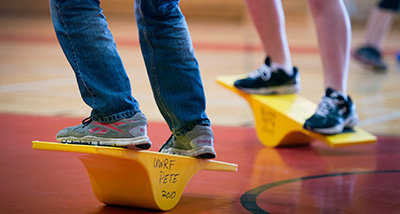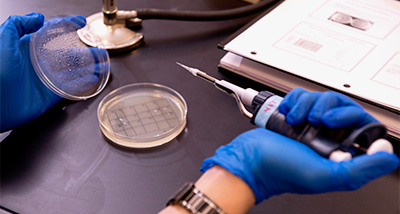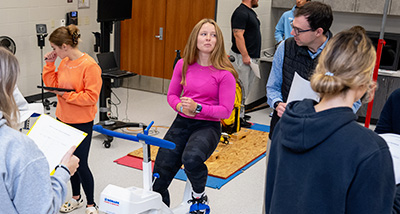

Exercise and Sport Science
Why Study Exercise and Sport Science?
Major | Exercise Science/Health and Human Performance | CEBAH
Physical activity is key to human health. As an exercise and sport science major, you’ll learn how to assess health and performance and improve outcomes, whether you’re training athletes using the latest scientific advances or improving a patient or client’s quality of life through exercise.
Learn more about the Health and Human Performance Department.
76%
Of Students Completed at Least One High-Impact Practice Before Graduation
16
Fortune 500 Companies Close to Campus
8
Living and Learning Communities
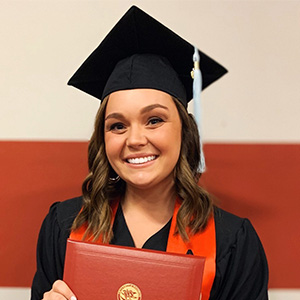
Exercise and Sport Science
hhp@uwrf.edu // 715-425-3705
Your Degree:
Undergraduate
Area of Study:
Exercise Science/Health and Human Performance
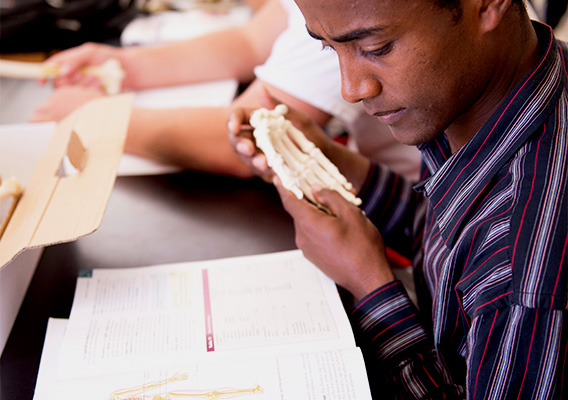
Skills and Learning Outcomes
- Assess a patient’s movement and physical activity in a laboratory setting.
- Understand the scientific method and key scientific fields as they relate to human physical activity, including the principles of biology, chemistry, anatomy, physiology and physics.
- Train athletes to perform at optimal levels.
- Critically interpret and integrate the latest scientific literature and research into practice.
Types of Courses
- Aerobic Leadership
- Applied Research Methods in Exercise & Sport Science
- Exercise Physiology
- Human Physiology
- Motor Learning & Development
- Nutrition
- Scientific Principles of Conditioning
- Sport, Fitness and Recreation Management
- Weight Training
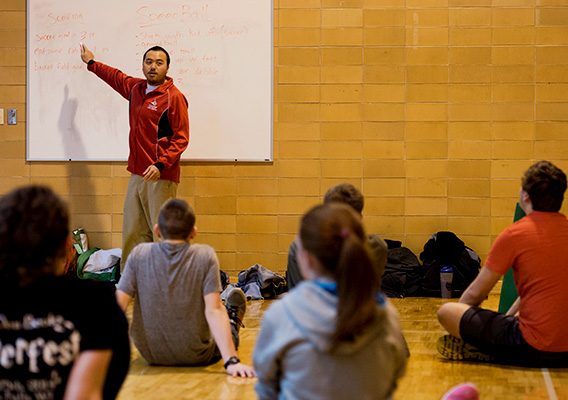
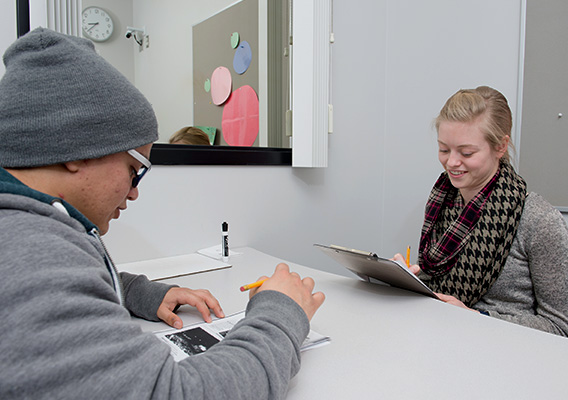
Potential Careers
After graduation, some students attend graduate school while others are prepared for potential roles such as:
- Athletic Trainer
- Cardiac Rehabilitation Specialist
- Exercise Physiologist
- Personal Trainer
- Physical/Occupational Therapist
- Public Health Manager
- Strength and Conditioning Coach
- Worksite/Hospital/Corporate Wellness Promoter or Coordinator
Get More Information
Interested in learning more about UWRF or any of our 70+ areas of study? Just share your contact information and we'll be in touch!

